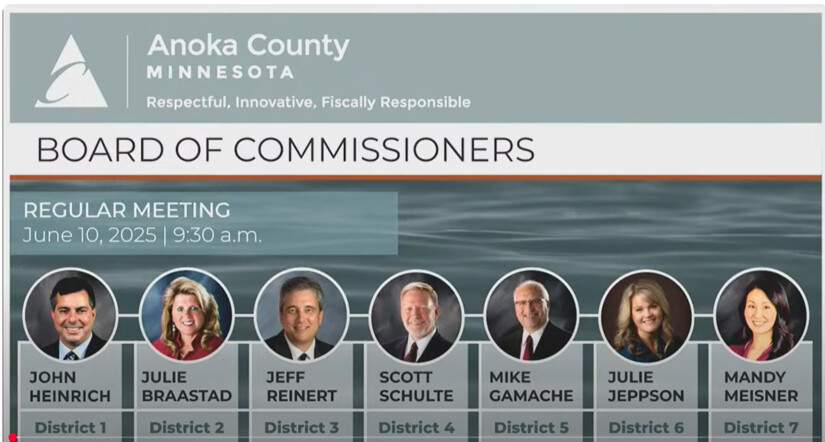Image


Anoka County Board Passes Resolution To Clarify It Is Not A "Sanctuary" Jurisdiction.
ANOKA, Minn. — At its June 10 public meeting, the Anoka County Board of Commissioners voted to adopt Resolution #2025‑PS11, titled “Resolution Affirming the Rule of Law,” to formally state that Anoka County is not a sanctuary jurisdiction for undocumented immigrants .
The resolution was prompted by a temporary release of a Department of Homeland Security (DHS) list on May 30 that classified Anoka County—along with roughly 20 predominantly rural Minnesota counties—as a "sanctuary jurisdiction". The following day, DHS quietly pulled down the list from its website.
County attorneys and the Sheriff’s Office flagged the listing as an "inaccurate characterization", asserting the county has never enacted policies that would prevent cooperation with federal immigration enforcement.
According to the full text, Anoka County:

A social media post by Commissioner Julie Braastad noted that the measure passed with a 6–1 vote and was intended to “clarify publicly that Anoka County is NOT a ‘sanctuary’ county”. Mandy Meisner was the only commissioner to see it for the political move and voted against the measure.
While the County Board did not hold a new public comment session on this specific resolution on June 10, the commitment for transparency originated earlier in the meeting cycle.
The issue echoes a broader Minnesota narrative, where cities like Minneapolis and St. Paul maintain local protections for immigrants, while rural and suburban areas are increasingly scrutinized by DHS . Minnesota remains without statewide "sanctuary" laws.
At the federal level, the DHS listing—and subsequent retraction—raises concerns. While some local officials questioned the designation’s rationale, the department did not clarify its criteria or pathways for contesting listings
The resolution carries no new legal changes to county operations. Instead, it is a formal clarification, reinforcing that Anoka County officials will continue to:
Bottom Line: Anoka County acted swiftly to correct what it called an "erroneous" federal designation by passing a resolution to officially assert its status as non‑sanctuary, affirm its compliance with state and federal law, and maintain openness with the public.